The pound jumped on the news that negotiations over Britain’s withdrawal from the EU could be delayed, after the high court rejected government claims that it has the sole power to trigger article 50.
Sterling climbed as much as 1.5% to hit $1.249, its highest level in three weeks, before falling back as uncertainty continued to grip currency markets.
Traders said the court ruling offered hope that MPs would limit the power of ministers set on a “hard Brexit”, easing concerns that Britain will be dumped out of the EU without a free trade agreement, harming its growth prospects.
The pound has tumbled since the Conservative party conference when Theresa May appeared to put plans to limit immigration above remaining in the EU’s single market. Spooked by forecasts that the UK could be pushed back into recession, investors have sold pounds in favour of safer-haven currencies such as the dollar and yen.
A run of solid business surveys in the last few days served to put a floor under the pound, but it took the article 50 ruling and the increased likelihood of a “soft Brexit” to give the currency a solid boost.
A monthly survey of services companies gave the pound a further lift on Thursday after it showed that the services sector expanded in October, supporting GDP growth. Also on Thursday, the decision of the Bank of England to hold interest rates ruled out an expected cut next month, making the pound more attractive.
The FTSE 100 was bolstered after the court ruling by domestic companies that report their earnings in pounds, including Royal Bank of Scotland, which was up 5%. However, it ended the day down 54 points at 6,790 as oil and mining companies, which report earnings in dollars, fell steeply.
Kathleen Brooks, head of research at the spread betting company City Index, said the court judgment had pushed the pound to its highest level since a sudden crash in its value last month, which market watchers have blamed on a computer trading glitch.
“This decision has increased the uncertainty around the UK’s decision to leave the EU. While normally uncertainty is bad for the markets, this time it is good for the pound,” she said.
Neil Wilson, a currency analyst at the spread betting company ETX Capital, described the court judgment as a “body blow” for May and Brexit-leaning ministers. “It’s made triggering Brexit a lot trickier and has given sterling a massive shot in the arm,” he said.
However, businesses reacted more calmly to the ruling with the CBI, the lobby group that counts Britain’s largest firms among its members, saying it was concerned by the uncertainty created by the Brexit vote but that the exact timing of the negotiations was a matter for the courts and government.
The CBI said: “The process for triggering article 50 is a constitutional matter for the courts, government and the UK parliament.”
The Institute for Directors, which mainly represents small and medium-sized businesses, said its members were reconciled to the current uncertainty and that the judges decision was just another episode in an ongoing story.
“They don’t have the time to follow every twist and turn in the debate,” he said.
The judgment (pdf), delivered by the lord chief justice, Lord Thomas of Cwmgiedd, is expected to slow the pace of Britain’s departure from the EU by giving parliament a role in setting conditions on ministers’ negotiating positions.
Many large multinational businesses are concerned that they could lose tariff-free access to markets in the EU once talks are concluded.
Hazel Moffat, a partner at the law firm DLA Piper, said the House of Commons and the House of Lords would now air the arguments for and against leaving the EU, “with an unpredictable outcome”.
“The only clear consequence of the high court judgment is that Brexit uncertainty is set to continue,” she said.
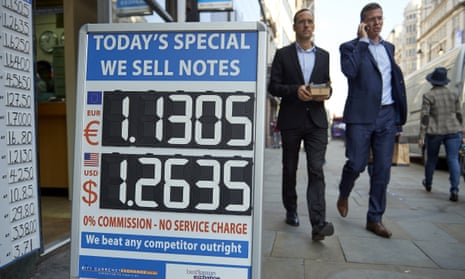


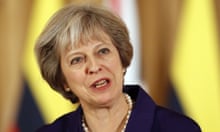


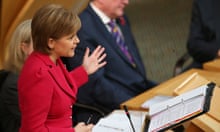
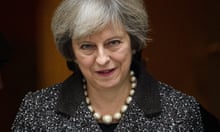

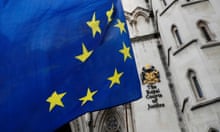
Comments (…)
Sign in or create your Guardian account to join the discussion